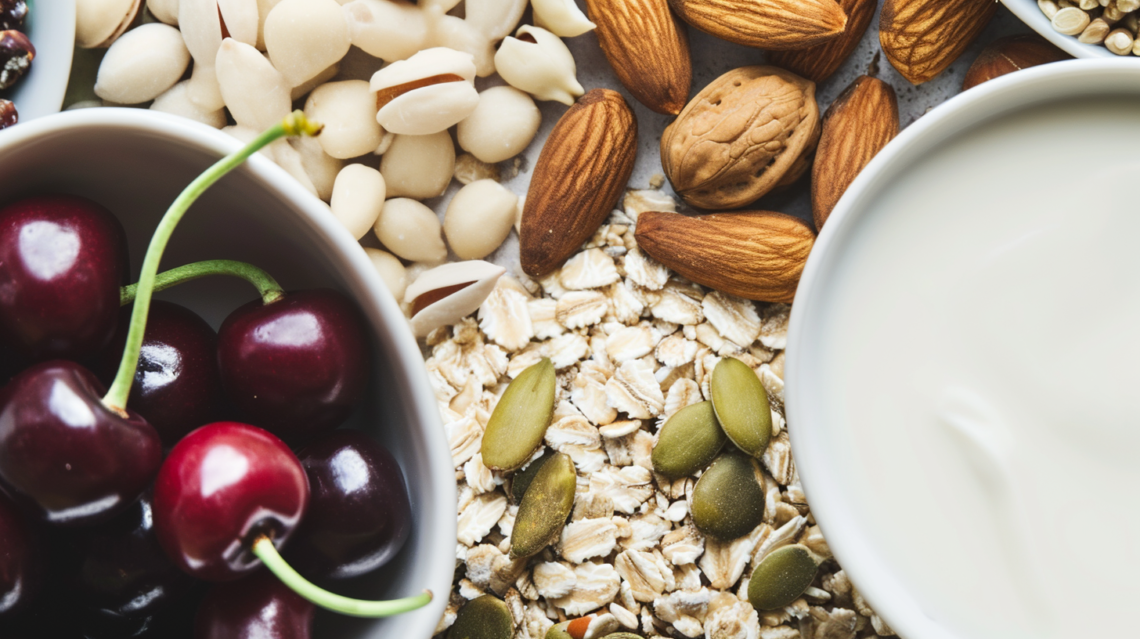Diet
-
Understanding Stomach Pain After Eating
Stomach pain after eating is a common complaint that can arise from a variety of causes, ranging from mild to severe, and understanding the intricacies of these causes can help individuals identify potential triggers and make informed choices about their diet and lifestyle. The mechanisms behind stomach pain post-consumption often involve the digestive system’s response to the breakdown and absorption of foods, where certain components in foods can trigger adverse reactions in some individuals, leading to discomfort, pain, or other gastrointestinal symptoms. This intricate process involves various factors, including the type of food consumed, individual sensitivities, and underlying health conditions, which collectively influence the digestive system’s ability to process and…
-
Foods to Avoid if You Have Heart Problems
Heart health is a critical aspect of overall well-being, especially for individuals with pre-existing heart conditions. Diet plays a significant role in managing and preventing heart-related issues. This guide will delve into the top three foods to avoid for those with heart problems, underpinning the importance of a heart-healthy diet. 1. Processed Meats: A Hidden Danger What Are Processed Meats? Processed meats include products like bacon, sausages, hot dogs, and deli meats. These are altered through curing, salting, smoking, or adding chemical preservatives. Why Avoid Them? A. High Sodium Content: Processed meats are notoriously high in sodium, a key contributor to high blood pressure, a significant risk factor for heart…
-
Childhood Nutrition and Growth
The foundation of a child’s future health and development hinges significantly on the nutritional choices made during their early years. Nutrition during childhood is more than just fuel for growth; it’s the cornerstone for lifelong health and well-being. The early years of a child’s life are marked by rapid growth and development, necessitating a diet that is rich in essential nutrients. These nutrients, including protein, carbohydrates, fats, and vitamins and minerals, are crucial for various aspects of childhood development, from the formation of strong bones and muscles to the development of a robust immune system and the establishment of neural pathways that have an affect on cognitive and emotional growth. Protein…
-
Gut Health
More than just a digestive organ, the gut is a complex habitat, teeming with a vast array of microorganisms – bacteria, viruses, and fungi – collectively known as the gut microbiota. This diverse microbiome is crucial in several physiological functions, stretching its influence from digestion to immune response, mental health, and even chronic disease prevention. Gut health’s critical role is rooted in its symbiotic bond with our immune system. Around 70% of the immune system is nestled within the gut, positioning it as a vital line of defence against harmful pathogens. This intricate relationship is key not just for digestive wellness but for overall systemic immunity. A balanced gut microbiome…
-
Vitamin C’s Role in Supporting Immune Health
In the domain of nutritional science, particularly concerning the immune system’s fortification, Vitamin C emerges as an indispensable nutrient. Its significance is notably accentuated in Canada’s winter months, a period rife with health challenges such as increased incidences of colds and flu. Among the plethora of natural sources, citrus fruits – including oranges and grapefruits – stand out as formidable allies in immune health enhancement. This article delves into the pivotal role of Vitamin C, with an emphasis on its immune-boosting properties, underscoring the strategic incorporation of citrus fruits in dietary regimes to maintain health during the colder seasons. Vitamin C, or ascorbic acid, is pivotal for its antioxidant capabilities…
-
The Efficacy of DASH and MIND Diets
In the dynamic field of nutritional science, a recent evaluative study of 30 diverse diets has notably positioned the DASH diet, an acronym for Dietary Approaches to Stop Hypertension, as the second most effective, closely followed by the MIND diet, formally known as the Mediterranean-DASH Intervention for Neurodegenerative Delay, ranked third. This prominent placement underscores the increasing recognition within the medical community of the substantial influence dietary habits exert on overall health, particularly in cardiovascular and cognitive domains. The DASH diet, originally formulated to address hypertension, adopts an integrative nutritional strategy, prioritizing the intake of fruits, vegetables, and whole grains, and incorporating beans and seeds. Its core principle involves a…
-
Fruit Juice and Sugar: Healthier Alternatives
Fruit juice, derived from the squeezing or pressing of fresh fruits, is often perceived as a natural and wholesome beverage. However, this seemingly healthy drink can also contain astonishingly high levels of sugar. For instance, a typical glass of orange juice can contain as much sugar as several whole oranges. The main issue here lies in the concentration of sugar. While whole fruits contain fiber, which slows down the absorption of sugar into the bloodstream, fruit juice will sometimes lack this important dietary fibre. As a result, the sugar in juice is absorbed much more quickly, leading to rapid spikes in blood sugar levels. Moreover, the juicing process densifies the…
-
Eating Your Way to a Better Sleep
In the fast-paced rhythm of modern life, achieving a good night’s sleep can often feel like a distant dream. Amidst this backdrop, the role of diet in influencing sleep patterns has garnered significant attention. Keep reading to learn more about the intricate relationship between what we eat and how we sleep, exploring various foods that can act as natural sleep aids. The Science of Sleep and Nutrition The interplay between nutrition and sleep is a complex, bidirectional relationship. Nutrients can influence neurotransmitters and hormones that regulate sleep, such as melatonin and serotonin. Conversely, sleep quality can affect dietary choices, often leading to increased cravings for high-calorie, low-nutrient foods. Understanding this…
-
Healthy Eating During the Holiday Season
The holiday season in Canada brings with it a unique culinary tradition that is both delightful and challenging. As family and friends gather to celebrate, tables are often laden with rich, indulgent foods that are deeply embedded in our cultural festivities. From succulent roasted meats to an array of pies and pastries, the holiday season seems to give a nod to indulgence, making it a particularly difficult time for those who strive to maintain a healthy diet. This juxtaposition of celebratory feasting and healthful eating creates a dilemma that requires careful navigation. Striking a balance between indulging in festive treats and maintaining a nutritious diet is at the heart of…
-
Dietary Considerations for Chronic Disease Prevention
In the realm of public health, particularly in Canada, chronic diseases such as diabetes, heart disease, and hypertension stand as formidable adversaries. These conditions, prevalent among adults, are often silently nurtured by lifestyle choices, among which diet plays a critical and undeniable role. This in-depth exploration aims to shed light on the intricate relationship between dietary habits and the prevention of chronic diseases. It underscores the importance of nutritional mindfulness as a key player in safeguarding long-term health. The Complex Relationship Between Diet and Chronic Diseases The intricate dance between what we consume and how our bodies respond over time is a testament to the power of diet in shaping…









